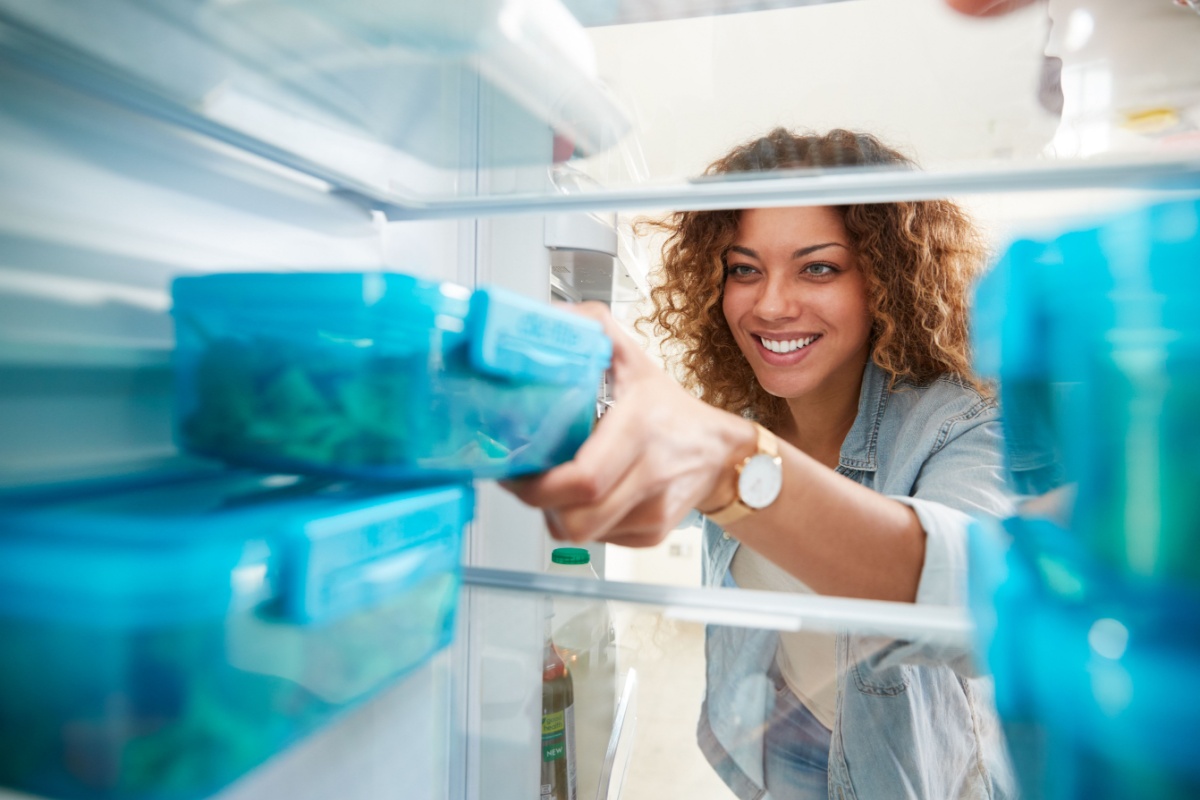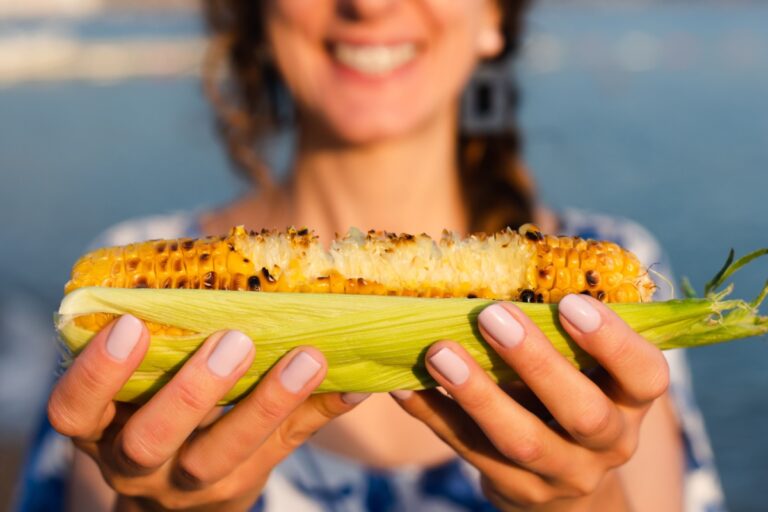15 Popular Foods You Should Never Store in Plastic Containers
Storing food properly is essential for keeping it fresh and safe, but not all storage containers are suitable for every item. Many people rely on plastic containers for their convenience, but certain foods and household items can react negatively to plastic, affecting taste, freshness, and even health.
Some foods can absorb chemicals from plastic, while others can cause stains, odors, or even spoil faster. Knowing what not to store in plastic containers can save you from food waste, unpleasant smells, and potential health risks. Here are 15 items you should avoid keeping in plastic containers to help maintain their quality and safety.
Hot Leftovers
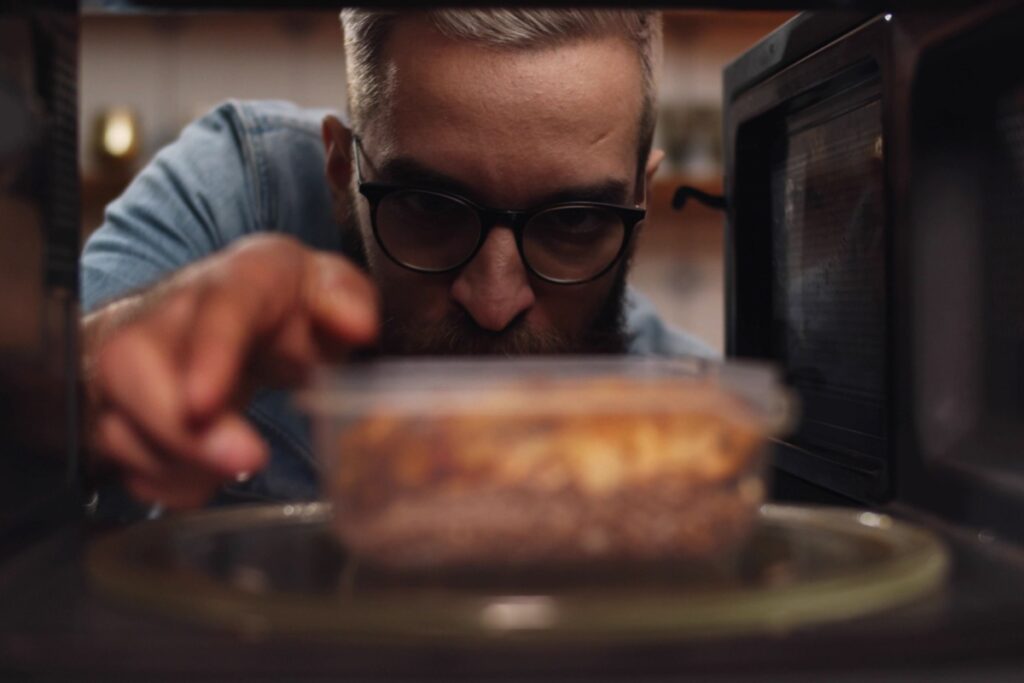
Storing hot leftovers in plastic containers may seem convenient, but it can actually be harmful. When hot food is placed in plastic, heat can cause chemicals like BPA to leach from the container into the food. This is especially true for greasy or oily foods, which react more with plastic.
To protect your health, let hot food cool down before transferring it to plastic, or choose glass containers instead. This will prevent chemical transfer and keep your food tasting as it should. Over time, using safer storage options for hot food can improve both flavor and safety.
Tomato-Based Sauces
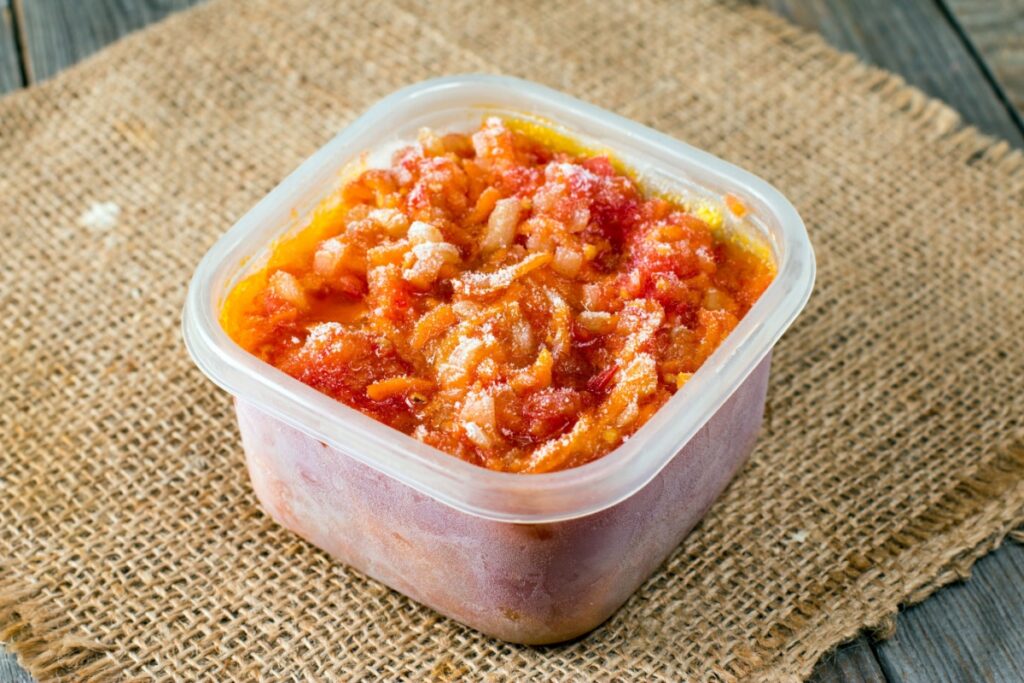
Tomato sauces, such as marinara or chili, are acidic and can easily stain plastic containers. The acidity of tomatoes also reacts with plastic, potentially causing chemicals to seep into the sauce. The rich red color of tomatoes will often leave stains that are hard to remove, even after washing.
Instead, store tomato sauces in glass containers or jars to preserve the color and flavor without risking stains. Using glass will also prevent that lingering tomato smell. This keeps your containers looking clean and your sauces tasting fresh.
Spicy Foods
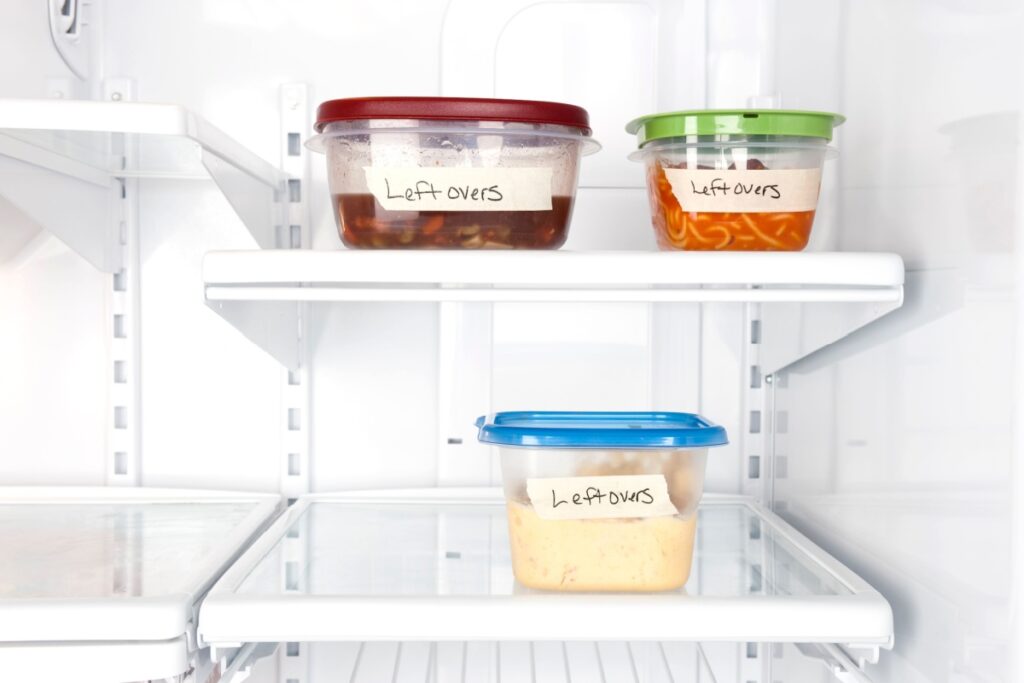
Spicy foods, like curries or hot chili, can also stain and leave strong odors in plastic containers. The oils from spices like turmeric, cumin, and chili peppers can cling to plastic, making it difficult to clean.
These oils can also leach into the plastic over time, affecting the flavor of any other foods stored in the same container later. To avoid staining and odor issues, consider using ceramic or glass containers for spicy foods. This way, you won’t be left with lingering smells or discoloration. Glass and ceramic are easier to clean and don’t absorb flavors.
Raw Meat and Fish
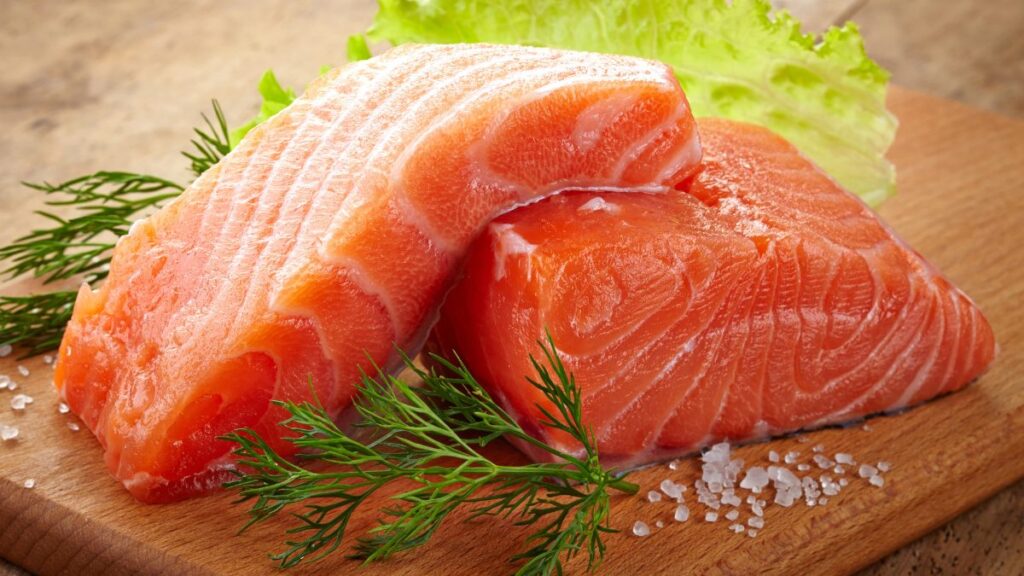
Raw meat and fish should never be stored in plastic containers, especially if the container isn’t airtight. Bacteria can easily grow in these environments, and any leftover juice can seep into the plastic, causing strong odors. Additionally, plastic containers can harbor bacteria even after cleaning, which is a risk for cross-contamination.
To store raw meat or fish, use sealed glass containers or keep them in their original packaging. Proper storage helps prevent bacterial growth and keeps your fridge smelling fresh. Glass containers are much easier to disinfect and won’t retain odors.
Soft Cheeses
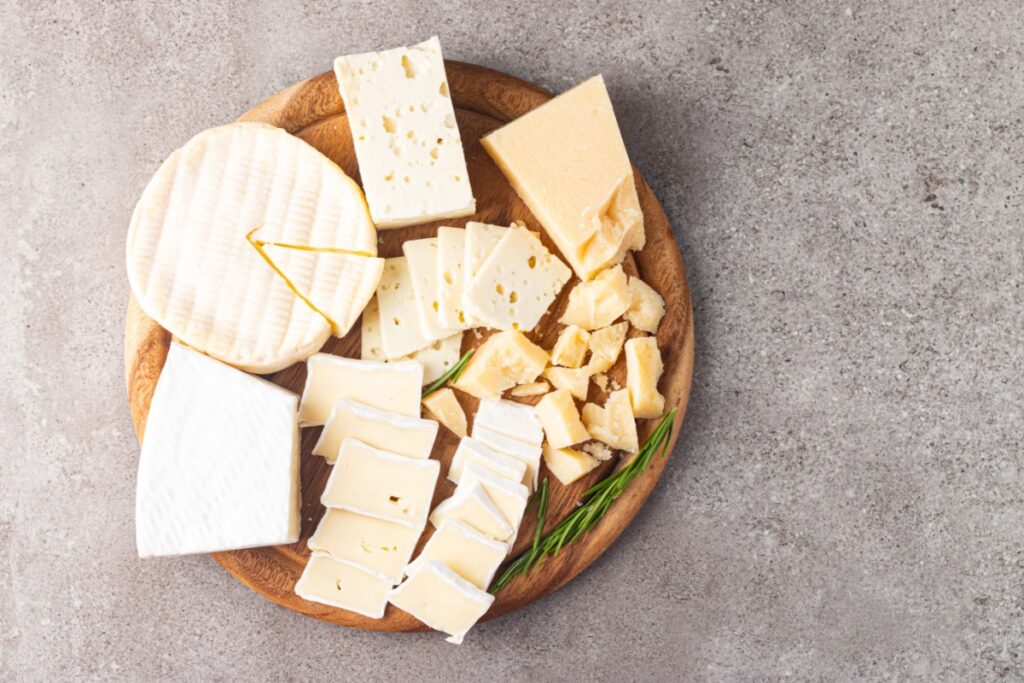
Soft cheeses, such as brie or feta, need to breathe to stay fresh, and plastic containers trap too much moisture. When soft cheese is stored in plastic, it can become slimy and spoil faster. Plastic can alter the taste of the cheese, especially if stored for too long.
It’s best to keep soft cheeses in their original packaging or in a wax paper-lined container. Alternatively, a glass container with some ventilation works well for keeping cheese fresh. Proper storage keeps the flavor and texture intact.
Bread
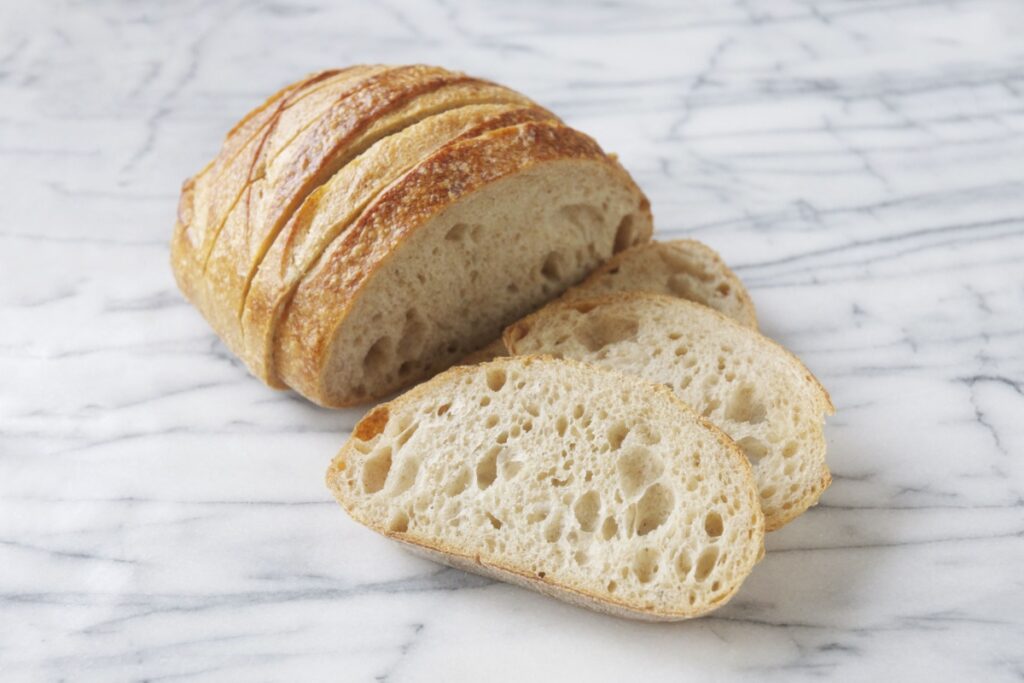
Storing bread in plastic containers can make it go stale or even moldy faster. Plastic traps moisture, which leads to sogginess while also preventing the bread from staying fresh. The lack of air circulation can cause bread to lose its texture and become chewy.
Instead, store bread in a paper bag or a cloth bag to allow it to breathe. You can also use a bread box, which is designed to keep bread fresh for longer. These methods help maintain bread’s natural texture and flavor.
Berries
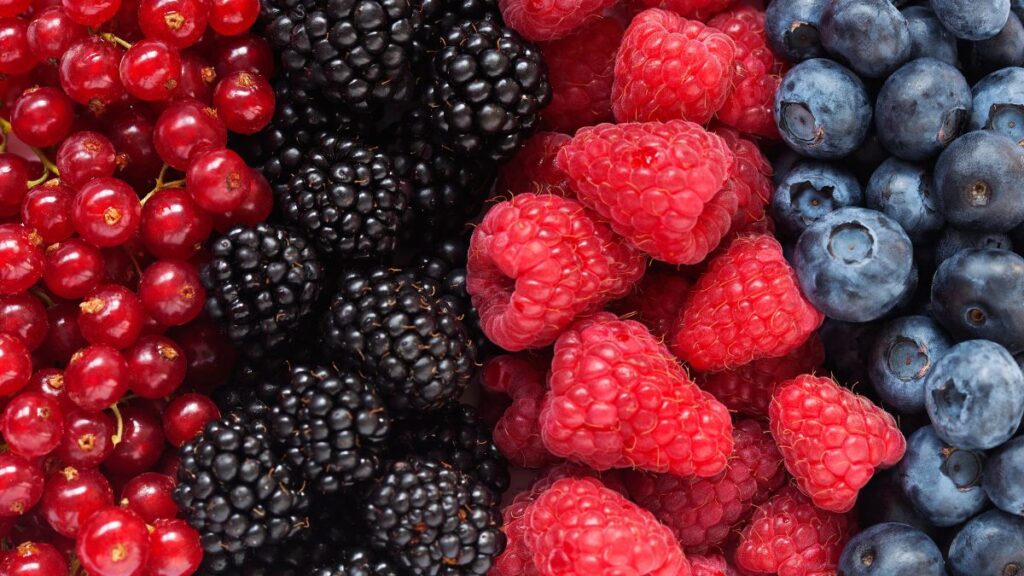
Fresh berries are delicate and should be stored in containers that allow some airflow. When berries are placed in plastic, trapped moisture can cause them to spoil and grow mold quickly. Storing them in a ventilated container, like a glass bowl with a paper towel, keeps them fresh longer.
Avoid washing berries until you’re ready to eat them, as moisture can speed up spoilage. Using a breathable container will prevent mold and help keep them firm. Proper berry storage also enhances their sweetness and texture.
Potatoes
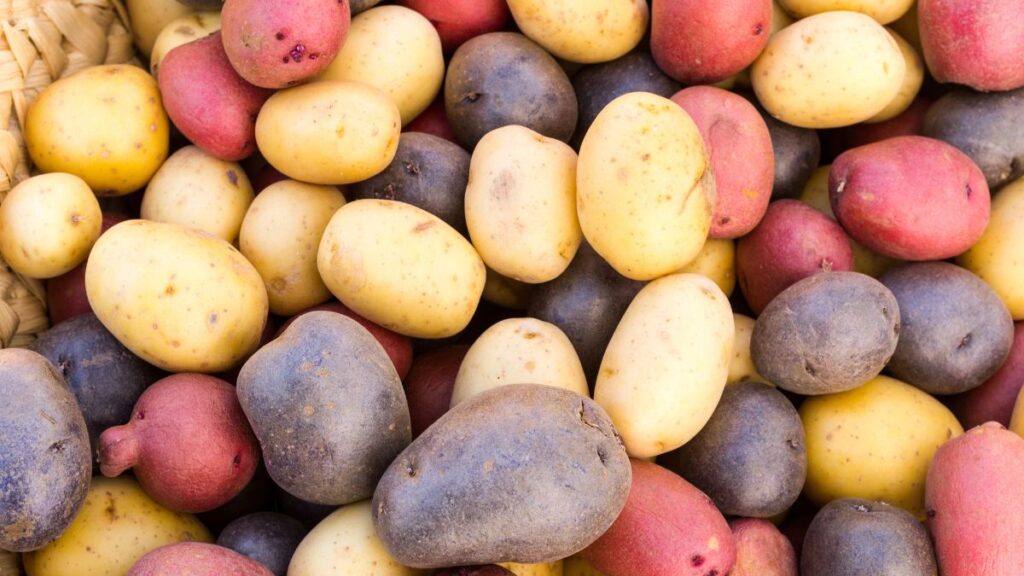
Potatoes need a dry, cool environment and shouldn’t be stored in plastic containers. Plastic traps moisture, causing potatoes to sprout or rot faster. They also need to be kept in a dark place to prevent them from turning green or developing toxins.
A mesh or paper bag is ideal for potatoes, allowing them to breathe without exposure to light. This will help them stay fresh and firm for longer periods. A cool, dark pantry or storage bin is a better choice than plastic.
Salad Greens
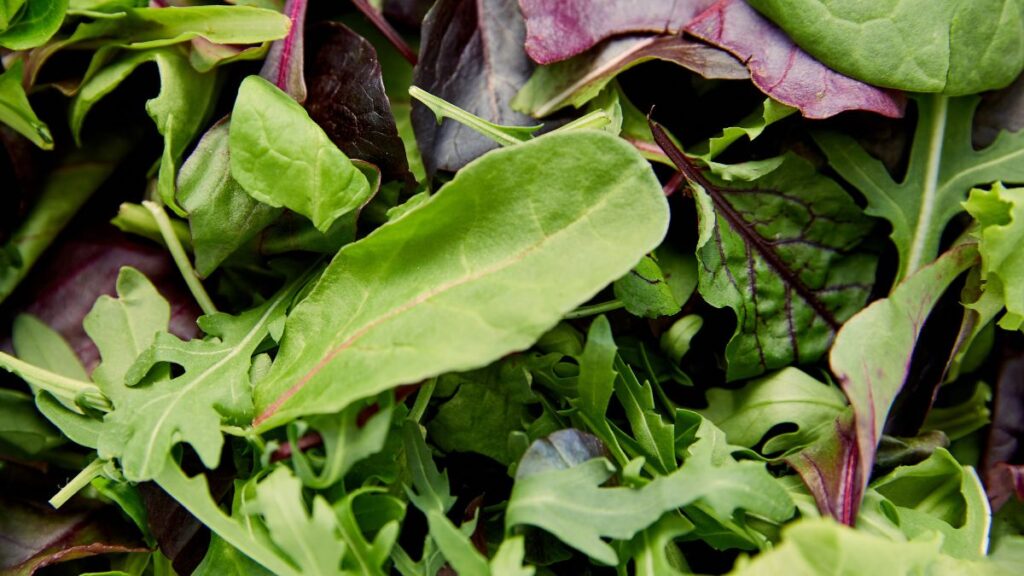
Storing salad greens in plastic containers can cause them to wilt and spoil quickly. Greens need some air circulation to stay crisp, but plastic traps moisture, leading to sogginess. Place fresh, crisp greens in a glass container lined with a paper towel to absorb excess moisture.
You can also wrap them in a clean towel and keep them in a breathable container. These storage methods keep greens crunchy and extend their shelf life. Properly stored greens taste fresher and stay vibrant longer.
Apples
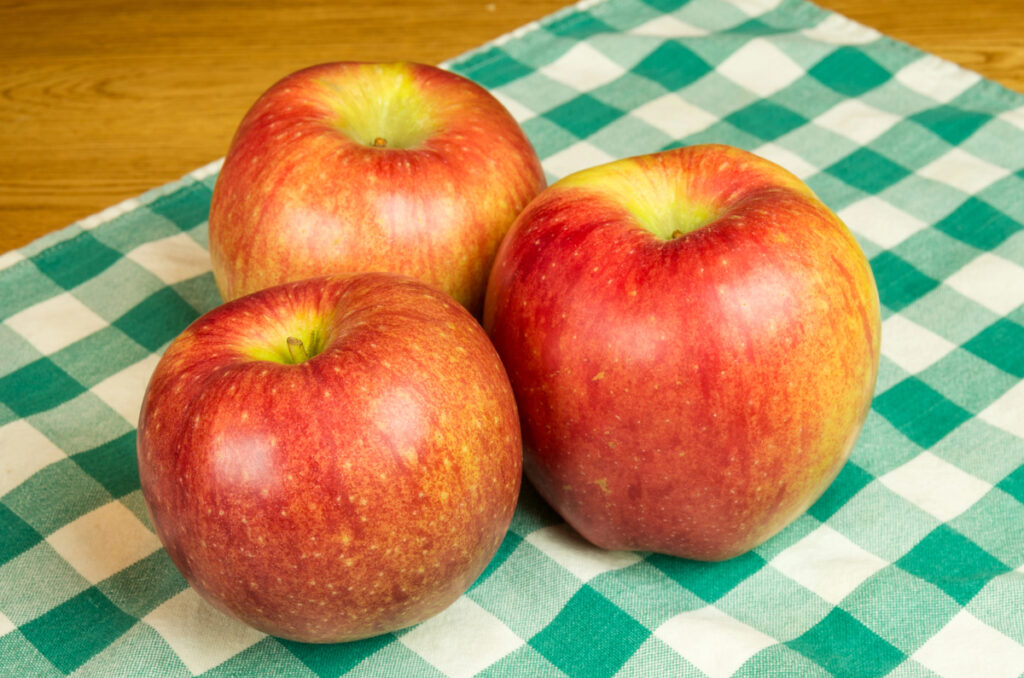
Apples release ethylene gas, which speeds up ripening, and plastic containers trap this gas, causing apples to spoil faster. They are best stored in a cool, dry place, like a fruit bowl on the counter or in a drawer in the fridge.
Keeping them in plastic can cause them to become soft and lose their crispness. For best results, store apples in a paper bag or directly in the fridge without covering them. This keeps them fresh and crunchy for weeks. Proper storage also prevents them from impacting other fruits’ ripening.
Onions
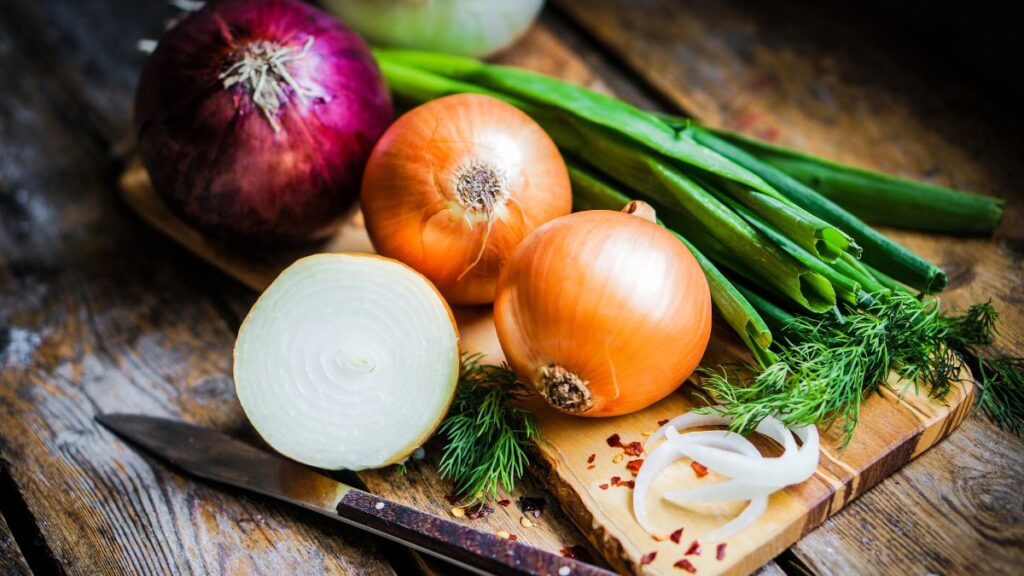
Onions need airflow to prevent mold and spoilage, which plastic containers do not provide. Plastic traps moisture, causing onions to rot faster, and can also make them develop a strong smell. Store onions in a mesh bag or a ventilated container in a cool, dry place.
This allows them to breathe and keeps them firm. A pantry or a cabinet away from sunlight is the ideal storage place for onions. Proper storage keeps them fresh and reduces the risk of mold.
Garlic
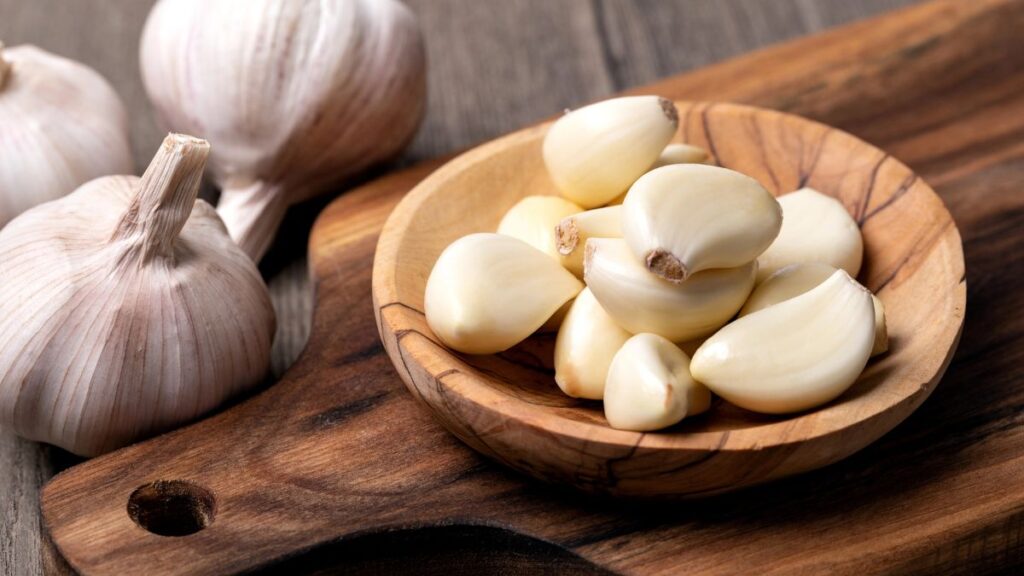
Like onions, garlic needs air circulation to stay fresh, and plastic containers can cause it to sprout or rot. Moisture trapped in plastic encourages mold and softens the garlic cloves over time.
Garlic should be stored in a cool, dry place in a ventilated container or mesh bag. Avoid refrigerating garlic, as it can also lead to a loss of flavor. Keeping garlic in a pantry with some ventilation allows it to stay fresh and flavorful for longer. Proper storage ensures its taste remains strong.
Pickles
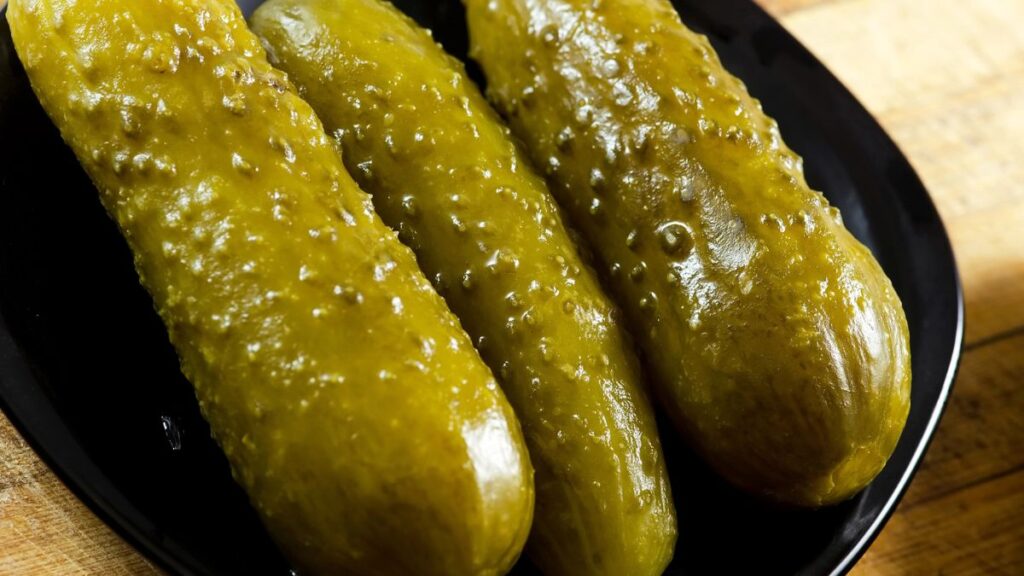
Pickles can absorb chemicals from plastic, especially over long periods, which affects their taste and safety. The acidic brine in pickles reacts with plastic, causing chemicals to leach into the liquid. Instead, store pickles in glass jars with secure lids.
Glass is more resistant to acidity and doesn’t alter the taste. This keeps pickles crisp and flavorful while preventing chemical contamination. Proper storage also keeps the brine fresher and enhances the pickle’s shelf life.
Nut Butters
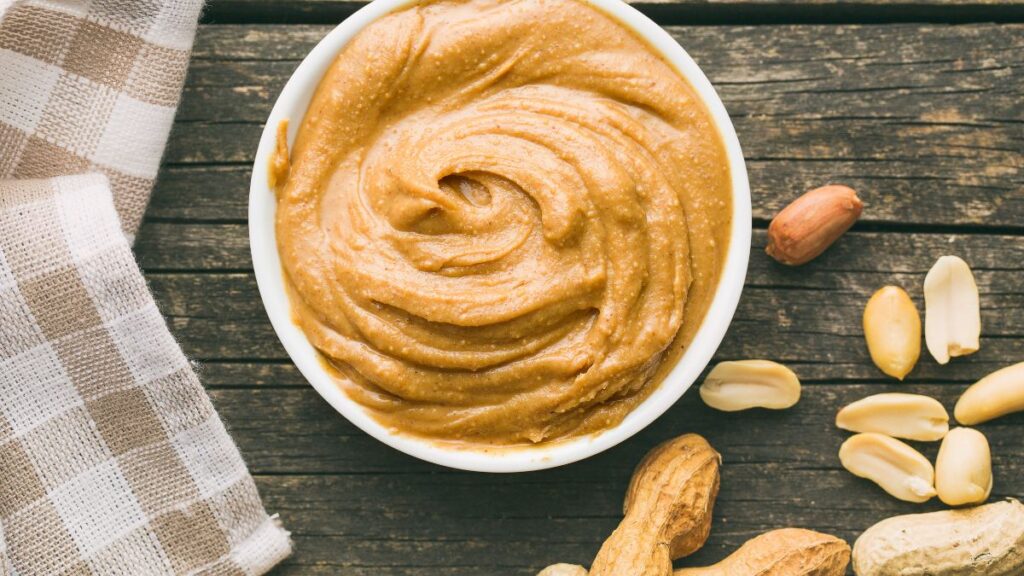
Nut butters, like peanut butter or almond butter, can leave an oily residue and odor in plastic containers. Over time, the oils in nut butter can seep into the plastic, affecting its taste and smell.
Storing nut butter in glass jars helps keep the flavor pure and prevents the container from smelling. Glass is also easier to clean and doesn’t retain oils. Proper storage keeps nut butter fresh and maintains their rich, nutty flavor. Plus, glass containers are reusable and easy to clean.
Honey
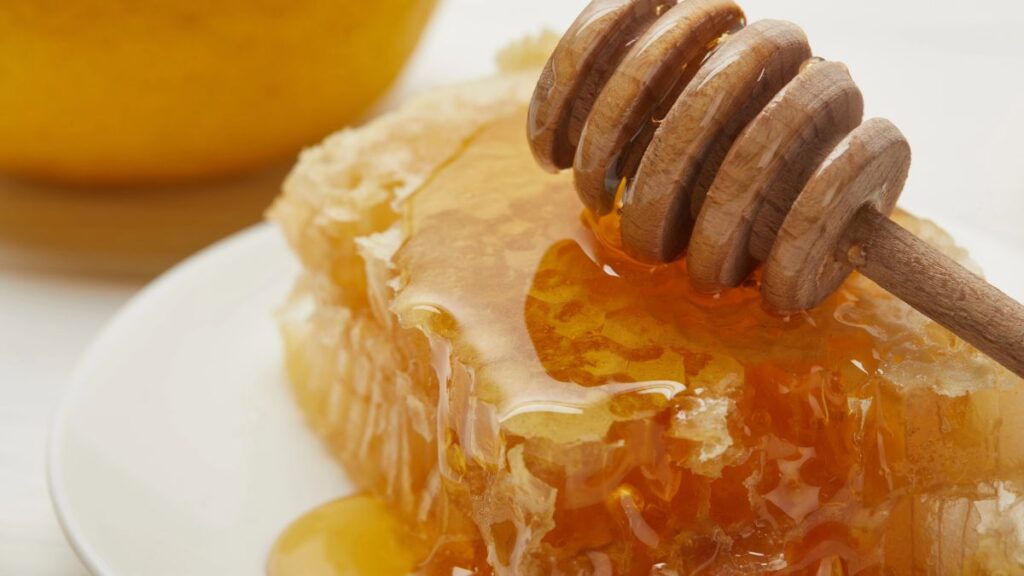
Honey is best stored in glass jars, as it can react with plastic over time. Although honey is stable and doesn’t spoil easily, plastic can impact its flavor and texture. Storing honey in a glass keeps it tasting as pure as possible without any added flavors.
Glass jars also help maintain honey’s consistency and are easy to clean. If you buy honey in a plastic container, consider transferring it to glass for long-term storage. This ensures that your honey stays delicious and ready to use.
The Top Places For After-Hours Fast-Food Eats

Discovering a late-night drive-thru goes beyond convenience; it becomes necessary for many. Whether you’re working a late shift, dealing with midnight cravings, or looking for a quick bite during a late-night road trip, having access to after-hours drive-thru services can make a significant difference.
The Top Places For After-Hours Fast-Food Eats
15 Things That Have Become So Expensive People Are Giving Them Up

With the cost of living steadily increasing, people are being forced to rethink how they spend their money. Many everyday items, services, and activities have become too expensive to justify.
15 Things That Have Become So Expensive People Are Giving Them Up

